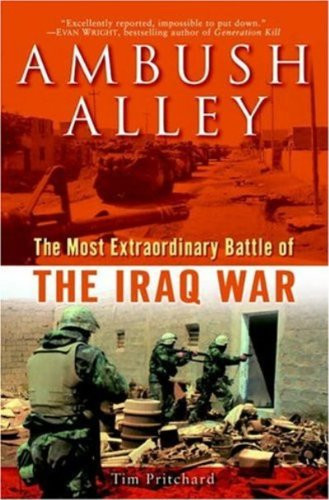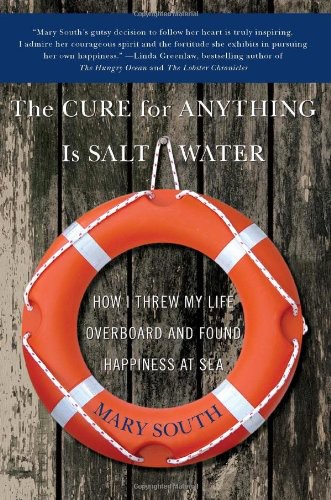oleebook.com
Ambush Alley: The Most Extraordinary Battle of the Iraq War de Pritchard, Tim
de Pritchard, Tim - Género: English
Sinopsis
March 23, 2003: U.S. Marines from the Task Force Tarawa are caught up in one of the most unexpected battles of the Iraq War. What started off as a routine maneuver to secure two key bridges in the town of Nasiriyah in southern Iraq degenerated into a nightmarish twenty-four-hour urban clash in which eighteen young Marines lost their lives and more than thirty-five others were wounded. It was the single heaviest loss suffered by the U.S. military during the initial combat phase of the war.On that fateful day, Marines came across the burned-out remains of a U.S. Army convoy that had been ambushed by Saddam Hussein's forces outside Nasiriyah. In an attempt to rescue the missing soldiers and seize the bridges before the Iraqis could destroy them, the Marines decided to advance their attack on the city by twenty-four hours. What happened next is a gripping and gruesome tale of military blunders, tragedy, and heroism.Huge M1 tanks leading the attack were rendered ineffective when they became mired in an open sewer. Then a company of Marines took a wrong turn and ended up on a deadly stretch of road where their armored personal carriers were hit by devastating rocket-propelled grenade fire. USAF planes called in for fire support play their own part in the unfolding cataclysm when they accidentally strafed the vehicles. The attempt to rescue the dead and dying stranded in ambush alley only drew more Marines into the slaughter.This was not a battle of modern technology, but a brutal close-quarter urban knife fight that tested the Marines' resolve and training to the limit. At the heart of the drama were the fifty or so young Marines, most of whom had never been to war, who were embroiled in a battle of epic proportions from which neither their commanders nor the technological might of the U.S. military could save them.With a novelist's gift for pace and tension, Tim Pritchard brilliantly captures the chaos, panic, and courage of the fight for Nasiriyah, bringing back in full force the day that a perfunctory task turned into a battle for survival.''Ambush Alley'' is a gut-wrenching account of unadulterated terror that's hard to read yet impossible to put down. London-based journalist and filmmaker Tim Pritchard, who was embedded with US troops during the initial stages of the American-led invasion of Iraq, paints a compelling picture of one of the costliest battles of the Iraq war that will at turns anger, horrify, and sadden, regardless of one's political views.'' --The Boston GlobeFrom the Hardcover edition.
Libros Recomendados - Relacionados
Reseñas Varias sobre este libro
Easily 4 Stars. A graphic, minute-by-minute account of the Marine battalion tasked to capture the bridges in Nasariyah. Should be read by all to show how a plan, well-thought out and rehearsed, can fall apart in reality. The Marines thought it would be easy, the opposition would fall apart at the first hard knock. How wrong they were. Truly a must-read to understand what is meant by "fog of war".history mid-east military ...more13 s 'Aussie Rick'423 229
This book provides the reader with a gripping and fast-paced account of the Battle for Nasiriyah that took place in Iraq on March 23, 2003 when U.S. Marines from Task Force Tarawa try to secure two vital bridges in the town.
After a few mishaps that takes the battalion command by surprise the men soon get bogged down in heavy and uncompromising street fighting with Iraqi forces. Using first-hand accounts of the men on the ground this is an excellent combat narrative that highlights the 'fog of war'.
Overall this is excellent book well worth reading by anyone who has an interest on what soldiers endure in combat.
middle-east military-history modern-conflicts8 s Chris64 27
I was completely unimpressed with the first half of the book, but the second half of the book is what made it good. The first half seemed to repeatedly bang me over the head with trivial matters that should have been briefly noted instead of being the focal point. The book did give context as to the some of the marines themselves but failed to really describe the context of this particular battle to the overall operation itself. During the second half of the book, starting with the A-10 situation, I felt the author did an excellent job of capturing the thoughts and feelings of the marines, as well as the chaos and devastation of the battle. In respect to that, this book did a superb job, and I would recommend it on that basis.military6 s Terri529 264
Wow, what a monumental and catastrophic screw up. This is a terrific book and I recommend it to all. Very shocking, very real, very well done.
Tim Pritchard gives you the battle for Nasiriyah you would never expect to get it. From many different angles and from many different viewpoints.
You have to read this book. No matter your taste in books, you owe it to these men to read their story.american-military-and-foreign-polic iraq-war modern-war ...more4 s Neil1,175 12
I thought this was a powerful book; it is about the fight to take two bridges at Nasiriyah by units from the USMC. I thought it was well-written and the author did a great job relating the emotions the young Marines were going through in their first battle as well as the overall fog-of-war that the news media seems to enjoy talking about. It was a harsh, bitter battle that introduced the young Marines into the hard truths of war, as nothing went according to plan and what the Marines experienced was nothing what they Marines had been led to believe would happen. It starts off "slow" only because the author is introducing different members of the unit and giving us background information to understand them better in terms of where they came from in conjunction with what they went through in their first battle. The book discusses how the title stems from the story of the American soldiers in Mogadishu in Black Hawk Down. There was a "primary" street that the American forces ended up using that exposed them to enemy fire on both sides; as it was the "quickest" and "easiest" route, the Americans were forced to use it despite the potential risks and dangers it presented to the Americans.
The book clearly shows the dangers of micromanagement, of not allowing commanders at the basic levels the freedom to make decisions within the guidelines of the overall policy or plan. The Marines struggled to regain the initiative for a good chunk of the battle; many of them saw their overall commanding officers as being the source of their problems in coping with the battle and trying to take the initiative. I thought the author did an excellent job in capturing the frustrations, fears, anger, and bitterness of the Marines who survived the fight.
The initial plan to take the bridges does not survive; the Marines are forced to improvise as a result.
The initial plan is disrupted when some of the Marines come across the remains of a US Army resupply unit that had become separated from their convoy and attacked by the Iraqis. The Marines stopped their advance in order to assist their American brethren; upon learning Americans had been captured, the Marines were ready to look for them and save their fellow soldiers-in-arms. It was this initial disruption that threw the Marine advance out-of-whack; once they were thrown off-stride, the Marines had a hard time regaining the initiative for a good chunk of the battle.
The number of tanks, Hummers, and tracks that became stuck in the mud was almost comical; it would no doubt be a hilarious moment in a comedy, except that Marines were dying because the vehicles had become stuck and could no longer offensively support the Marine soldiers. As a result, the Marines had to defend the entrapped vehicles to prevent them from being overrun and destroyed by the Iraqis. It was comical, on the one hand; on the other, it was distressing as the tanks could have been utilized to break the attack and morale of the Iraqis while providing the support needed to revitalize the Marines. It was crazy, to read about how the heavy military vehicles kept breaking through the thin crust of hardened dirt and sinking into the bog underneath.
By far the "saddest" part of the book [battle] had to be the the "Blue on Blue" "incident" in which the two A-10's attacked the Marines by accident and killed many of them, destroying many tracked transports in the process. The FAC on the ground was not aware that some of the Marines had pressed into the city as far as they had and informed the A-10's there were no "friendly units" beyond a certain point. The attack also highlighted a serious deficiency in the training of the Air Force and Guard/Reserve pilots: they were not trained to recognize the vehicles used by the USMC. Had they been so trained, the attack might not have occurred and the American lives not lost due to their efficient attack. At one point, the pilots were discussing how happy the Marines on the ground had to be with their strafing runs and the amount of damage they were causing to the ground forces; the pilots had no idea they were attacking fellow American soldiers until they were suddenly, inexplicably called off from attacking any further.
It was also "amusing" how the Rules of Engagement were thrown out the window and discarded in favor of saving American lives. Not that the American Marines became mass murderers and killing everybody they saw; far from it. Instead, the American soldiers focused on saving their brothers-in-arms while attempting to discourage the Iraqis from pressing their attack(s). The Iraqis had definitely used the Rules of Engagement to their benefit, prior to the Marines chucking the rules out the window and engaging anybody who looked to be a threat.
I thought it was an excellent book. It discusses mistakes that were made; it also shares how some of the surviving officers intended to change their training methods so that future mistakes would be less ly to occur. It does not sugarcoat what the Marines went through, but neither does it portray the US soldiers in a poor light [ other authors and news agencies have done in the past]. I felt it also gave valuable insight into the minds of the Marines who went to war; their attitudes and perceptions before the battle and how their mindsets and preconceived notions were changed due to the battle, due to the harsh fighting. It might start off "slow" as the author provides background information on various soldiers in the unit, but the pace definitely picks up and carries the reader along to the story's end. I am glad that I finally got around to reading this book.
american-history finished-in-2017 general-history ...more1 TysonAuthor 2 books16
A fascinating book on a single day that lost many good Marine's lives. From communication and intelligence SNAFUs to the blue on blue engagement, nothing is held back in this gripping commentary on one of the worst days in recent Marine history.
Why this event hasn't received more publicity and oversight is beyond me but it is something that should be read and talked about and studied in war college. Recommended.history military read-in-20111 Tasha 1,079 37
Tragic, haunting, harrowing. A must read, at the least to honor those who went through this experience. We'll never fully grasp what this experience was really for these brave men but Tim Pritchard does an amazing job putting us on the front lines with these marines through his words. Not for the faint hearted but war never is, is it? It was hard to put this book down.modern-military1 Christopher170 11
The plain and simple version is this is a very in the moment book. There is not a long drawn out introduction of who the people are, that is done simply throughout the first portion of the book.
Straight to the point this book is about what happened on a single day in a single battle. It conveyed all the confusion of battle and how things this were won or lost at the lowest level. Once the battle was engaged it was the company commander and below decision making that carried the day.
It even showed that with all of our technology and capability, war is still the individual and small teams carrying the battle. It also showed the old adage "no plan survives contact with the enemy". Literally, it the space of a few minutes, weeks of planning went to crap. After that it was decision-making decision making looking through a straw.
This book was not intended to be an analysis of the campaign overall or even this one battle. This book was intended to bring to the reader that horror that is war. Given that intent it succeeded.
This book should be mandatory reading for every officer in command of a combat unit from the battalion level up and then reread every few years to remind them that decisions made high on the mountain affect everyone in the valley. J1 review
I really enjoyed reading this book. It is a detailed account of a chaotic situation where a myriad of extraordinary actions took place. What happens when the events take over the most restrictive and top down oriented plans? A must read for all leaders who think that can micromanage every aspect of their environment (SPOILER: they cannot) Lucian Chipuc50
Actually I couldn't finish the book, I dropped it when about 50%.
The story is very interesting and captivating but the amount of details is quite overwhelming: it feels someone is narrating to you frame by frame a Discovery Channel or National Geographic documentary show. Laurie Simmons33 3
Every American president should read this before sending our young men and women into battle. Very well written, loved this book. unclesamsavage33 5
Succinct in Sixteen
Detailed, well-researched retelling of events from apparent Marine Corps admirer Pritchard. Chaotically structured the battle.history military Warren216 1 follower
Usually, when a cover blurb says "impossible to put down" I am skeptical. Ray Elliott25 1 follower
This was a detailed and somewhat gory depiction of warfare, and particular the Iraq war. Jim36
This is a great book. It was hard to put down because of all the action, but I had to take breaks because of the intensity. In March 2003 Marine Task Force Tarawa was to secure two bridges in the town Nasiriyah, clearing a route for the assault on Baghdad. There was to be little resistance and almost no fighting. Uh huh. The first bridge was taken easily, but soon after several tanks and AAVs got stuck in mud pits. Now the marines had to set up defensive positions instead of cruising through to to secure the other brig. The maps weren't precise and radio communication between companies was severely hampered in the urban environment. The the town exploded with resistance. Companies and platoons got separated, marines got shot. A great story of courage, stamina and decisive thinking by marines when plans had to be changed. The story is told from the perspective of over a dozen marines, so you get to see different angles for the same time frame/event. This way of writing really lets you feel the chaos drama as it unfolds. You hear how the young marines thought some of the stuff they did over and over in training was stupid ("Reloading!") but they came to appreciate it in a firefight. Probably the modern war action book I've read since Blackhawk Down. God bless our troops, especially the killed and wounded of Task Force Tarawa. Anthony76 3
If you wish to read a book that presents itself more as a novel than an explanation and layout of a military operation than pick-up Ambush Alley. Ignoring the obvious fictional feel of the book I still found the reading intersting militarily. Involving three mechanized units Alpha, Bravo and Charlie of the Marine contigency who are given the task of seizing two strategic bridges located in Nasirayh, Irag. The Marines are left to believe the Iraq's will meet the soldiers with gratitude and very little resistance. What transpires is an afternoon of complete confusion with the Command and Control of the Marines and a major attack by Iraq regulars along with local fighters. The only thing that reduces the Marines casualties are the individual fighter efforts of the soldiers and the leadership of mid-level officers and NCO's that recognize the seriousness of the situation and act accordingley. Read the book to gain a better understanding of the confusion of war and not the minute by minute conversations of dozens of soldiers that in no way could of been recorded or remembered under the stress of war but that Tim Pritchard the author recollects so easily as if they happened yesterday and if he was there at all the locations of these Marines. 2012reads history Christopher26 1 follower
Expecting to roll through Al Nasiriyah on the way to Baghdad, being welcomed by open armed Iraqis, the US Marines' plans went awry before they had reached the first bridge to the South of the city.
The night before the planned manouver, an army convoy had made a wrong turn and stirred up a hornet's nest in the town. An oft used maxim is that "No battle plan survives contact with the enemy" and this book demonstrates this perfectly.
Lack of communication, military intelligence and proper planning all contributed to a disaster that unfolds with horrifying predictability when read from afar.
The author strings together a confusing and disorganised picture to give a more vivid experience than a movie.
"Black Hawk Down", the debacle in Somalia involving US Army Rangers, is often referenced in the book; principally because the similarities are startling. Clearly, the lessons of that day in 1993 were not learned.
Pulling no punches, the author has clearly spent a great deal of time and careful interviewing to bring the details together. Highly recommended, although beware as once you begin reading it is very difficult to stop. Rob130 1 follower
I d the book overall. It is engaging and tense at times.
As an "old Corps" marine I found the aspects of the technology available
to be far beyond what I experienced 'way back when'. But the technology as
revealed in this book is a double edged sword that brings about much destruction
to those wielding this tool as to those who are the intended targets.
This book reminded me of the book, "Blackhawk Down".
I think this book is worth reading if you are interested in Marine Corps history and
as well the war in Iraq.
My reservation about giving the book a higher rating is that the author Tim Pritchard based
his book on the interviews of some 50 marine participants...this is not his first hand account.
Be that as it may, I believe reading it to be of value to get a picture on the chaos of war. Digit36 1 follower
I'm not going to pretend to know what the experince of battle feels , however if I was to assume then I think this book does a brilliant job of capturing the ebb and flow perfectly.
The authors style may not be to everyone's enjoyment as it does move quickly, however I think its perfect for representing the confusion experienced that day. As close to immersing the reader into the chaotic state as you could expect from a book that recounts the 'fog of war'.
For fans of Black Hawk Down, this is definitely a book of its equal and will have you emotionally connected to the many men who were at the mercy of a culmination of many bad decisions that collectively exposed the American War Machine with fatal consequence, if only to be saved by the raw initiative of the men on the ground.
Fantastic book that will undoubtedly make it to the big screen. JenetteAuthor 1 book15
I've read a number of books on Task Force Tarawa, all of which I enjoyed. Unfortunately this one didn't quite reach my expectations. Something about the way it was written made it difficult for me to truly feel for the men involved. Throughout my reading I felt very detached from events whereas in the previous books I've read I've felt my heart pounding in places, and a desperate need to see whether the men whose lives I was reading about came out unscathed. A little disappointing but still worth a read.war-stories Darren15
Overall a good book with an eye-opening, if not somewhat alarming, look at the most costly battle (for Marines) of the Iraq War. The book isn't written particularly well, and feels disjointed at times, but this partially reflects the completely chaotic nature of the battle. There is no glossing over the harsh realities of war here, and how even the most ferocious, highly trained fighting force in the world can get into a lot of trouble. Could have done without the language though.. Rich Taylor186 13
This book describes a debacle of a battle during the invasion of Iraq. The battle described and the mistakes, as well as the impressive actions of some individuals are certainly fascinating, unfortunately the style of the writing is awful. There is no objective analysis, merely a poor attempt at describing personal exploits of the soldiers - and of course no input from the Iraqi side of things.militaryhistory Mark191 1 follower
If you enjoy small unit combat stories, you will love this book. You get all the detail -- from the weapons used by the men, their food and life, as well details about their attempts at communication. Tim Pritchard tells the story and illustrates Clauzawitz's fog of war. Sean21
Very riveting and gripping book. This brings the Iraq War to level of a war not just insurgents taking pot shots. It was real full-fledged combat and the men that took part should be respected and those who died should be remembered.iraq-and-afghanistan Tin Wee253 7
I was inspired to read this after reading Fiasco. This is an inspiring and gripping tale of how the Marines blundered into a situation, suffered several setbacks (friendly fire ala Hamburger Hill), and bounced back to win the day. Recommended. Kecia11
Awesome account of one of the first battles in Iraq. This book read more a novel than non-fiction. It makes me wonder if some of the details were slightly embellished. Great book for military buffs. Cimuchowski197
Mud stopped our tanks. Friendly fire was unfortunate. The victory was ours. war Saul17
Autor del comentario:
=================================












